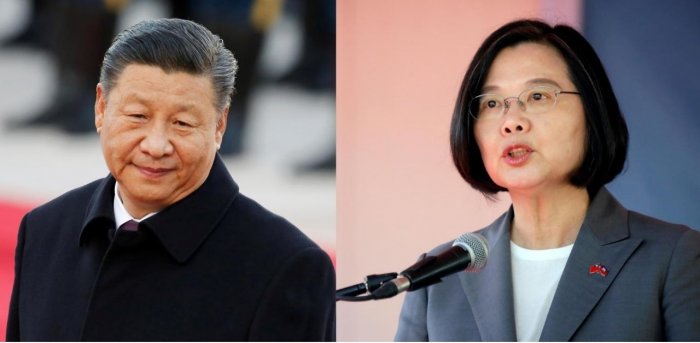It has all come down to President Trump’s decisions to counter China once he leaves the Oval office. With Biden’s moderate approach to tackling the Chinese problem public knowledge, President Trump is making sure that China remains contained on all fronts including the Taiwanese one by sanctioning arms deals worth millions of dollars.
In alignment with other decisions that the US has taken to contain and irk the Chinese, President Donald Trump has given the go-ahead to another major arms deal, a seventh arms deal in seven months, with Taiwan. The decision comes at a time of rising Chinese belligerence in the South China Sea as Trump is making sure that Taiwan can resist any Chinese military forays when the President leaves the office. In his decisions to sell advanced military equipment worth billions of dollars in just the past month, Trump is tying Biden’s hand in regards to future deals with China.
The Trump administration on Monday approved a new major arms deal sale worth $280 million to Taiwan and slapped provocative sanctions on Chinese officials over the crackdown of pro-democracy advocates in Hong Kong.
The US state department approved a sale of advanced military communications equipment and also sanctioned 14 members of the CCP’s standing committee. These moves have increased in frequency over the last few months as Trump keeps making decisions to contain as his time in the office comes to a close.
The US state department issued a statement regarding the latest arms deal to Taiwan, it said that the deal would “help improve the security of the recipient and assist in maintain political stability, military balance, economic and progress in the region” and to “contribute to the recipient’s goal to modernize its military communication’s capability in support of their mission and operational needs”.
Taiwan’s foreign minister Joseph Wu in an interview with the Guardian also highlighted the need of the international community to resist China’s desire to “expand its authoritarian order”. Amid increased Chinese incursions in the Taiwanese airspace, Wu said “We cannot assume that China will attack Taiwan or will not attack Taiwan, in what period of time,” while at the same he time urged countries like Australia, already staving of the pressure of Chinese aggression in diplomatic and trade relations, to rethink their ties with China and join forces with countries like Japan and the United States to create a ‘more difficult international situation’ for the Chinese government.
Since the Chinese Civil war which resulted in the CCP taking control of the Chinese mainland, The Kuomintang under Chiang Kai Shek fled to Taiwan and have since been resisting the CCP’s military adventures making it the headquarters of the ousted ROC regime.
Taiwan’s latest arms deal is a sign of Taiwanese military deterrence growing, with major deals already secured and Taiwan building up its own submarines to take on the PLA’s navy. Taiwan’s confidence has reached peaks of deterring CCP military incursions last seen in 1971 when Taiwan’s military could have overwhelmed the PLA.
Taiwan has been calling for recognition in the International arena and those calls have intensified since the Chinese virus-induced Pandemic completely obliterated the world’s economy.
The United States under Donald Trump has been leading the march to stem Chinese aggression in Asia and other parts of the world, but with his time in the Oval office over, Trump is making sure that his policies and US leadership remain intact to contain China. Moreover, relations between China and the United States have been hitting new lows almost every month as President Trump is unrelenting in his bid to contain Chinese aggression. His actions will also tie the hands of his successor when Joe Biden moves into office thereby imprinting his image over the long-term foreign policy of the United States.
